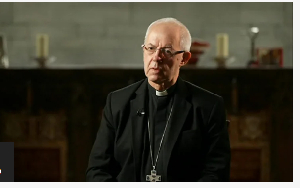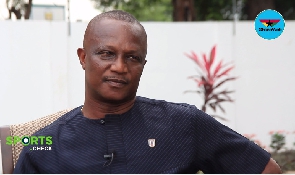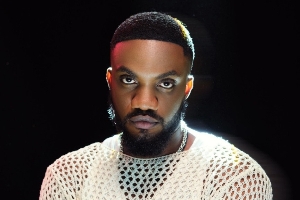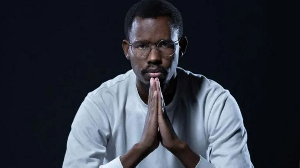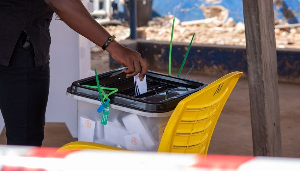Di Archbishop of Canterbury don call di idea of assisted dying "dangerous" and suggest say dis one go lead to “slippery slope” or situations wia more pipo go feel say na by force for dem to end dis life medically.
Di head of di Church of England bin tell BBC dis one as di UK Parliament dey ready for di first reading of one bill wey go give pipo wey dey terminally ill for England and Wales di right to end dia lives.
Kim Leadbeater, di MP wey introduce di bill on Wednesday, tell BBC say she disagree wit di archbishop “slippery slope” argument, as she say dia proposal na for pipo wey dey go die from dia sickness already and dem dey suffer at di end of dia life.
Polls from recent years don consistently show say 60-75% of British public support dat kain law.
Different kains of assisted dying dey legal for United States, Canada, Australia and some European kontris.
For some of dis kontris, e dey legal for doctor to prescribe di medication, plus administer am to you. For odas, doctor only get right to prescribe you di medication, na you go take your own hand administer am to yourself.
And supporters say UK go benefit from looking at wia di system di operate di best.
But Archbishop Justin Welby tell BBC say to legalise assisted dying go “open di way to expand am in way wey be say, pipo wey no dey dat situation [terminally ill] go ask for dis, or feeling pressured to ask for am”.
Im plus 25 oda Church of England bishops and archbishops get seats for di House of Lords and dem fit vote on legislation.
“For 30 years as priest I don siddon wit pipo for dia bedside. And pipo don say, ‘I want my mum, I want my daughter, I want my brother to go becos dis dey so horrible,’” im tok.
Im say, as a teenager, im bin sometimes get di same tin for im mind about im own papa for di final years of im life.
Im also refer to di death of im mama, Jane, 93, last year, saying she bin describe say she bin fee like say she be “burden”.
But im say im no want pipo to feel guilty for tinking like dat and add say im dey worry say pipo feel say na by force to ask to die if dem feel like burden – idea wey im say dey wrong.
E say im don notice a marked degradation for im lifetime of di idea say “everyone, however useful dem dey, dey of equal worth to society”.
E say most times dem dey overlook di disabled, sick and elderly, in way we go impact weda dem fit access assisted dying.
But Kim Leadbeater, di Labour MP wey introduce di assisted dying bill to Parliament, say di bill na about terminally ill pipo, not for pipo wit disabilities or mental health conditions, and e go get clear criteria set for access, as well as medical and judicial safeguards.
"Dia gatz get change in di law. I dey very clear about dat. But we gatz get di detail right,” she tell Victoria Derbyshire on BBC Newsnight on Tuesday.
"Di status quo no dey fit for purpose and unfortunately I don spend time wit plenty lots of families wey don go through similar, terrible, end of life situations and na one of di reason I wan put dis legislation forward."
Members of di public don also express support for goment to take action on enacting dat kain laws.
One woman tell BBC her 54-year-old husband bin suffer from Huntington, one degenerative condition wey no get cure, and im bin ty to kill imsef three times becos im bin wan go before di condition "steal im dignity from am".
Jane Vervoorts say her husband Dick, eventually died some police officers and paramedics around im bed.
Dem later investigate her and she say dem "make me feel like murderer", before police finaly decide say no be criminal mata.
She say dem tok about Dignitas - di Swiss clinic wey dey offer assisted dying for di terminally ill - but dem bin no fit afford to go and " I for enta wahala if to say I take am".
Sarah Wootton, chief executive of campaign group Dignity in Dying, describe di bill as "historic opportunity" and say di ban on assisted dying dey "forcing terminally ill people to suffer despite di best care, spend dia life savings travelling to Switzerland, or take mata into dia own hands for home, most times dem go leave relatives traumatised".
Dr Gordon Macdonald, chief executive of Care Not Killing describe di latest plan to try to legalise assisted suicide or euthanasia as “dangerous” and “ideological”.
Im say: “No doubt, e go get pipo wey go claim say legalising assisted suicide or euthanasia dey progressive, but na lie...Instead, I strongly beg politicians and goment to focus on fixing palliative care system wey don break."
Na one of di main issues wey dey cause discussion about di presence of religious figures for parliament.
Secular groups for UK for long time now don dey call make dem remove religion from di debate and even make senior bishops lose dia right to sit for House of Lords wia dem fit vote on di mata.
Di last time dem bin vote on di topic for one General Synod for 2022, only 7% of Church of England national assembly say dem support change in di law.
E dey different from di strong majorities in favour of di law wey reflect in public polling.
“E go get pipo wey go look di mata finish say di Church dey totally out of touch, say dem totally disagree wit us, and say dem no go near any church, but we no dey do tins based on opinion polls,” Archbishop of Canterbury tell BBC.
Last week Cardinal Vincent Nichols, head of di Catholic Church in England and Wales, also beg Catholics to write to dia MPs to express dia opposition to assisted dying.
But na di Church of England wey also get di privilege of being di “established Church” for England, and na 26 Church of England bishops and archbishops wey get automatic seats for House of Lords.
Parliament go hear second reading of di bill on Friday 29 November.
Click to view details



BBC Pidgin of Wednesday, 16 October 2024
Source: BBC





